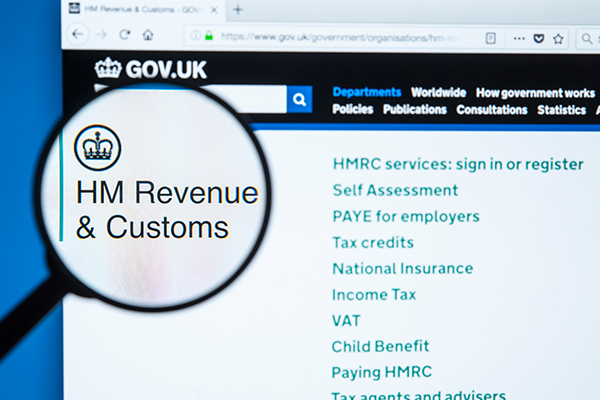
Author: Adam Spriggs, R&D Tax Director

Most industries experience BOOMS, whether it’s as far reaching and impactful as the dotcom boom, or more sector specific or regional; like craft beer or manufacturing in Birmingham. Over the past five or so years the world of R&D Tax has experienced such a BOOM. Despite the scheme being around since 2000, for the first 10 odd years the scheme wasn’t as well known or commoditised.
Early on in my career I can remember completing R&D claims as part of general corporate tax compliance, looking back its clear accountants didn’t realise at the time the value these claims provided for themselves and clients but also the preparation process and the information provided to HMRC left a lot to be desired compared to the present day standard.
Since then there have been more and more boutique’s that have set up, as well as general practice firms setting up their own teams; whether as large scale as GT investing in the expansion of their team in 2017 or regional firms overnight providing R&D Tax advice to their clients. People in the industry have drawn their own conclusions to this, whilst there are obviously a lot of strong and good quality claims being submitted to HMRC, I have also seen first-hand claims where this was clearly not the case and two incidents spring to mind. The first involved a fruit machine manufacture who was simply building machines to spec, I likened it to building Ikea flat back furniture with instructions. I informed them that from the areas we discussed there wasn’t anything to claim for – I found out 4 months later that they had submitted their own ‘claim’ with their accountant. The other was more shocking and involved a meditech company claiming c£350k of QE, of which c£270k was (tangible) capital, however as the claim only included a total figure HMRC had no way of knowing how this figure was made up or that the majority was ineligible under the SME scheme. What was most concerning was that the accountant and client went silent when this error was brought to their attention.
I’ve also seen a company’s claim clearly show that it was claiming rent as a consumable due to the advisor’s legitimate misunderstanding that it did qualify. In this instance, whilst it was a bona fide mistake, it was an error that was clearly stated that HMRC could see; which they either missed or hadn’t reviewed the claim at all. Whilst most of us would be rightly shocked by this, there’s a reason why there’s a perception so many are abusing the scheme and HMRC might not review every single claim. As detailed in last year’s HMRC statistics; of the 59,265 claims submitted to date for 2018/19, 72% of which were for under £50,000 (similarly 74% in 2017/18). With only a finite amount of resources and so many claims being submitted you can see why so many aren’t able to be properly reviewed and slip through the net, with resources tending to be focused on much larger claims or in hot topic sectors like construction or software. It’s no wonder people have looked to abuse the scheme.
Professional Standards and increased Case Law
The provision of taxation advice is an unregulated industry and whilst most of us adhere to general professional ethical standards, there hasn’t been much specifically covering R&D Tax advisory work. This hasn’t gone unnoticed, as the seven professional bodies that developed Professional Conduct in Relation to Taxation (PCRT) recognised this and last summer released guidance on the application of professional standards in providing R&D Tax services. The need to ensure that advisors are taking the same level of ethical care as they would when completing a tax return or only undertaking work if they have the knowledge and expertise to do so competently is vital in ensuring that the quality of claims is maintained. R&D projects require a competent professional, so it’s ironic that it appears so many companies don’t use one to assist preparing their claims.
This has become more evidenced with the increase number of R&D Tax cases in the past year going before tribunals. The case of AHK Recruitment Ltd demonstrated HMRC’s success in entirely rejecting a claim due to them not being satisfied that R&D had taken place and that the project description had been provided by individuals not contemporaneously involved in the project. Another, Teksolutions-Inc Ltd, was a lot more farcical where the company (without the assistance of an advisor) submitted a claim where it couldn’t evidence that the costs claimed had actually been incurred and paid. The judgement also includes one of the most comical lines from a case decision in referencing the claimants assertion that they had incurred the majority of their claim expenses through eBay:
“On 17 May 2017, HMRC obtained access to the records from the eBay account said by Mr Quarm to have been used to make purchases claimed by the Appellant as expenditure. Those records showed purchases only of a personal nature including a child’s bike, a pair of trainers and a games console.”
More recently Hadee Engineering saw a company abandoned by their advisor when HMRC first raised their enquiry, which unfortunately shines a light on those in the industry who are with clients for the good times but don’t stand by them or their own work. Any firm not offering enquiry defence as part of their core offering should instantly be setting alarm bells ringing. This case has also had a more wider impact with HMRC now expanding their interpretation of a ‘subsidised project’ which can potentially result in the majority of claimants having to claim under RDEC as opposed to more lucrative SME scheme.
Whilst these cases do demonstrate the quality of claims that have been submitted, HMRC are not without criticism. The judgment of AHK Recruitment includes repeated requests by the inspector for the competent professional’s qualifications for him to be satisfied that the individual put forward could be classed as one, a requirement that is not stated has to be met in their own guidance at CIRD 81300. From personal experience I have been in an enquiry meeting with an HMRC case worker and inspector where the case worker felt the relationship the claimant company had with a service company for costs claimed as Externally Provider Workers (EPWs) didn’t meet the definition of a labour provider. After querying this statement with the inspector, he agreed that there is no definition of a labour provider for R&D tax relief (subject to the position as an intermediary) and the case worker was applying their own view of the relationship instead of a consistent and documented HMRC approach.
Summary
On balance I sincerely believe advisors and claimants have only genuine intentions and are not actively trying to defraud HMRC. There is a lot of concern at the moment that a few ‘bad apples’ are giving the industry a bad name; anecdotal stories of advisors classing activities such as engaging a firm to build a website or install a telephone system for you is classed as your R&D doesn’t help. In the past few months I’ve read articles from similar experienced advisors asking companies to check if their advisor is regulated under a professional body like the CIOT or ICAEW and whether they conduct Ani-Money Laundering checks on their clients. Whilst all of these should be second nature to most professionals, its genuinely surprising how many advisors cannot say they tick one, let alone two of those boxes.
In the past 12 months there’s been a lot of positives, from HMRC’s consultation into increasing the scope of qualifying expenditure, as well as the details of the PAYE cap that was original announced in the 2018 budget. Whilst most initially pushed back on the PAYE cap saying that a lot of genuinely businesses would be hurt by it (myself included), the 300% multiplier and £20,000 threshold will mean that most genuine claims won’t actually be affected. When it comes to HMRC and enquiries, mistakes happen on both sides – it’s how both sides act and conduct themselves during any enquiry period is what is important. Whilst HMRC are concerned about fraudulent claims and where the uncertainty boundaries start and end, there is also concern over personal views taking over publicised guidance and legislation as well as arbitrary percentage reductions that don’t appear to be based on a shared and consistent methodology.
Most of us believe that the industry does require some form of regulation but agreeing how or what form that takes isn’t that simple. Requiring every firm to be regulated under a professional body isn’t the answer, unless they were to extend that criteria to all tax work for consistency, which I don’t see happening. In March, another consultation was released looking at all aspects of both R&D schemes and also covered the role advisors play, so we are starting to see more and more steps taken to look at the role of advisors by the government and HMRC.
All most of us can continue to do is ensure that our clients and partners are well informed and aided in submitting accurate and genuine claims and hope that the steps taken in the past year continue in bringing regulation, control and accountability to a scheme designed to grow our economy which, after the past year, is vital.



